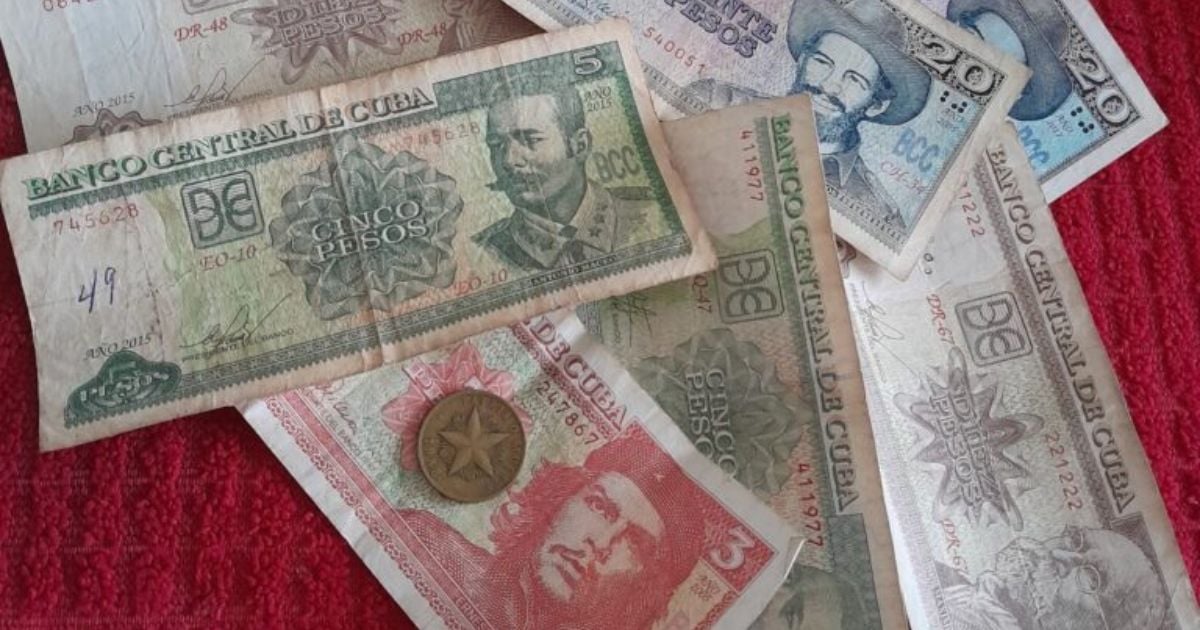In Cuba, an increasing number of small and medium-sized businesses are turning away lower denomination bills, creating severe challenges for a population already grappling with an economic crisis. This trend is exacerbated by the enforced banking policies and a shortage of cash available in banks and ATMs.
Journalist Irene Izquierdo highlighted in Bohemia magazine that this issue predominantly impacts those who rely on wages and pensions for their livelihood. The Banco Metropolitano, one of Havana's major financial institutions, typically dispenses 20, 10, and 5 peso notes, which many businesses now decline to accept.
The Struggles of Pensioners
Take the case of Norma Redonovich, a retiree with a monthly pension of 1,600 pesos. She spent three months saving to treat her daughter to a special birthday meal. However, upon visiting “El Moro,” a well-known micro-business in Alamar for its relatively affordable prices, she encountered a sign stating that no more than 300 pesos in 20 and 10 peso notes would be accepted.
The situation escalated when Redonovich attempted to pay for a can of milk priced at 430 pesos, excluding the cost of chicken. "Several people in line sympathized with me and helped exchange my money for 50 and 100 peso bills," Redonovich recounted. This incident sparked a heated discussion among those present, who began to share their own experiences with businesses that only accept 100 peso bills or larger.
The Reality of Banking Policies
"What's the point of banking policies?" questioned one observer, referring to the unfulfilled promises of the electronic payment system. The core idea behind banking is to streamline transactions and minimize cash usage, which starkly contrasts with Cuba's reality, where physical transactions prevail amid cash shortages.
During the ensuing debate, it emerged that some businesses justify this practice by claiming their wholesale suppliers also reject smaller bills. However, others wondered if this trend might conceal attempts to evade tax controls, a persistent issue in the country due to a lack of inspectors and transparency in tax declarations.
The Broader Economic Implications
The handling of cash increases the risk of tax evasion in an economic context that still requires more efficient control mechanisms. Meanwhile, digital transactions, which should address these challenges, are not fully implemented or accessible to all sectors of the population.
As Izquierdo noted, the accumulation of smaller bills among the public contrasts with their rejection in businesses, where the difference between denominations often only exists physically. Ultimately, this situation underscores the complexity of an economy marked by inflation, cash shortages, and the difficulties associated with enforced banking, disproportionately affecting the most vulnerable.
Cuban Economy and Banking Challenges
Why are Cuban businesses refusing smaller bills?
Many businesses in Cuba refuse smaller bills due to cash shortages and to streamline transactions. Some also claim that their suppliers do not accept smaller denominations.
How does this refusal affect Cuban citizens?
The refusal of smaller bills complicates daily transactions for Cuban citizens, particularly those who rely on pensions and wages, as they struggle to pay for goods and services.
What is the impact of enforced banking policies in Cuba?
Enforced banking policies in Cuba aim to reduce cash usage but often fall short, leading to a reliance on physical transactions and difficulties due to cash shortages.
Are digital transactions widely available in Cuba?
Digital transactions are not yet fully implemented or accessible to all sectors of the Cuban population, which limits their effectiveness in addressing cash-related challenges.
